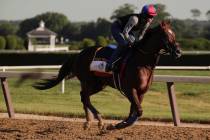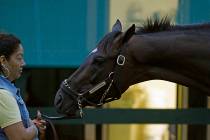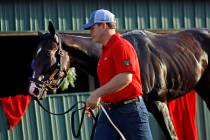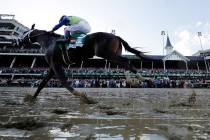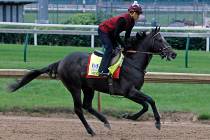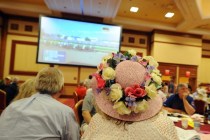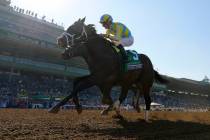Sport needs to keep its stars racing longer
If horse racing is to improve the product on the track and grow as a gambling business, it'd be a good idea to keep the best horses competing longer.
On Saturday at Hollywood Park, we'll be seeing two venerable equine stars in The Tin Man and Lava Man in the American Handicap and the Hollywood Gold Cup, respectively.
Marquee older horses used to be the rule, rather than the exception, in the sport. It's a trend that needs to be revived somehow.
Too often horses are rushed into stud duty after a meteoric career. The end usually comes during their 3-year-old season. It's a self-fulfilling prophecy because the industry puts all its stock in these 3-year-olds running in the Triple Crown. Then a culture of deep-pocketed horse buyers willing to overspend on young unraced babies makes the retirement decision too easy. Breeding, not racing, is where the money is.
The older horses we typically see either are too slow to interest breeders or geldings with their future set. We need another reason to race older horses -- because it makes economic sense.
On equidaily.com, I read a unique idea from Bill Finley of ESPN. He proposed that racetracks write a special condition into Grade I stakes restricting starters to "horses whose sires were 5 years old or older at the time the horse was conceived."
The condition would basically ban the offspring of 4-year-old stallions from many top stakes races. It's harsh. But it may be necessary for the racetracks to try reversing a destructive trend of the star horses disappearing all too soon.
Finley's idea is similar to the rule prohibiting high school kids from jumping to the NBA. These kids now are required to play at least one year in college before declaring for the NBA.
Likewise, Finley's proposal would keep horse racing's star athletes at the racetrack longer before they graduate to stud duty. In the long run this will benefit them, the sport, and the fans.
Richard Eng's horse racing column is published Friday. He can be reached at rich_eng@hotmail.com.
RICHARD ENGMORE COLUMNS








